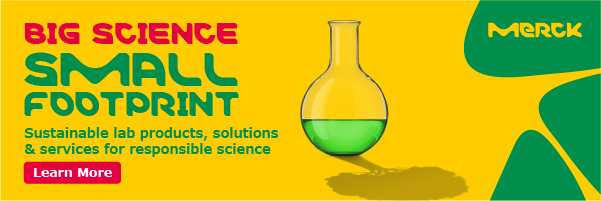Life Sciences
The BioMed X Institute: a new research model at the interface between industry and academia 26th March 2021
BioMed X is a new collaborative model between academia and industry developing innovative products in the fields of biomedicine, molecular biology, cell biology and diagnostics.
 The BioMed X Institute located on the campus of the University of Heidelberg in Germany is a new collaborative model in which early-career biomedical scientists recruited globally work together on novel preclinical research projects. Interdisciplinary project teams conduct research in the fields of biomedicine, molecular biology, cell biology and diagnostics in an open-innovation lab facility under the guidance of experienced mentors from academia and industry while also expanding their scientific network and receiving training in entrepreneurship and leadership. Each team is typically sponsored by one of BioMedX’s corporate pharmaceutical partners, which include AbbVie, Boehringer Ingelheim, Janssen, Merck KGaA and Roche. Once a BioMedX project is completed, it is internalized into the development pipeline of the respective pharmaceutical partner.
The BioMed X Institute located on the campus of the University of Heidelberg in Germany is a new collaborative model in which early-career biomedical scientists recruited globally work together on novel preclinical research projects. Interdisciplinary project teams conduct research in the fields of biomedicine, molecular biology, cell biology and diagnostics in an open-innovation lab facility under the guidance of experienced mentors from academia and industry while also expanding their scientific network and receiving training in entrepreneurship and leadership. Each team is typically sponsored by one of BioMedX’s corporate pharmaceutical partners, which include AbbVie, Boehringer Ingelheim, Janssen, Merck KGaA and Roche. Once a BioMedX project is completed, it is internalized into the development pipeline of the respective pharmaceutical partner.
Boehringer-Ingelheim collaborations
Last October, BioMed X successfully completed its first joint research project with Boehringer Ingelheim in neuroscience, the results of the project being transferred to the pharmaceutical partner for further development.The joint project commenced in 2016 as a global call for research proposals using the BioMed X crowdsourcing platform. The project uncovered the contribution of a subtype of glial cells known as astrocytes to molecular phenotypes in depression. Using state-of-the-art genetic approaches and imaging methods, the research team provided a comprehensive insight into defective neuro-glia interactions and their consequences for neurotransmitter homeostasis. This work has led to the identification of molecular components regulating key processes impaired in depression. Candidate genes have been validated in several biological systems and novel glial-specific drug targets for therapy of depression have been proposed.
 Dr. Christian Tidona, Managing Director & Founder of the BioMed X Institute, comments: “This is the second successfully completed project with Boehringer Ingelheim and our first one in the field of psychiatric diseases. Our ongoing partnership with Boehringer Ingelheim is a bright example for sustainable translational research at the interface between academia and industry resulting in solid new impulses for pharmaceutical research and development.”
Dr. Christian Tidona, Managing Director & Founder of the BioMed X Institute, comments: “This is the second successfully completed project with Boehringer Ingelheim and our first one in the field of psychiatric diseases. Our ongoing partnership with Boehringer Ingelheim is a bright example for sustainable translational research at the interface between academia and industry resulting in solid new impulses for pharmaceutical research and development.”
Another BioMed X research programme being carried out in collaboration with Boehringer Ingelheim, started in January 2020, is investigating myelination deficits of the adolescent brain in connection with the development of schizophrenia.Psychiatric disorders such as schizophrenia emerge as a consequence of abnormal brain development and maturation. During adolescence, the brain is reorganized for mature function by processes such as cortical myelination, dendritic arborization, synaptic pruning, and circuit plasticity. Particularly in schizophrenia, there is evidence that genetic, epigenetic and environmental factors negatively affect the balanced functional maturation during adolescence and cumulatively increase the risk for developing symptoms.
The BioMedX research group supported by Boehringer Ingelheim is specifically investigating myelination deficits, which have been observed in the brains of schizophrenia patients. The innovative approach includes the development of in vitro and in vivo platforms to study oligodendrocyte development and myelination and the goal of the project is to identify novel extrinsic (neuronal) and intrinsic (oligodendrocytic) factors affecting myelination as potential new targets for the prevention of schizophrenia in high-risk individuals.
Expanded immunology collaboration
In November of last year, BioMed X added a further research programme in the field of immunology to the Institute’s existing collaboration with Janssen Research & Development, LLC. The new project is focused on the development of novel methodologies to systematically profile and dissect complex tissue microenvironments with the goal of identifying components that induce pro-resolution responses in tissue-resident innate immune cells to restore homeostasis in autoinflammatory diseases such as psoriasis, systemic lupus erythematosus (SLE), rheumatoid arthritis (RA)and inflammatory bowel disease (IBD).
Response to COVID-19
In response to the COVID-19 pandemic, BioMed X is striving to develop an arsenal of ultrafast new antiviral drug discovery, development and mass-manufacturing tools, the Rapid Antiviral Response (RAR) Platform,to allow rapid medical treatment development from the identification of a new viral pathogen to 10,000 doses of a safe and potent new medication in less than 6 months.
“SARS-CoV-2 is a serious threat to global public health and the global economy. Current drug discovery, development and mass-manufacturing processes are far too slow to respond to a viral pandemic like COVID-19,”says Dr. Tidona“To avoid a lockdown of the global economy in the future, we need completely new technologies which are at least ten times faster than the present state-of-the-art. This is what our RAR Platform intends to deliver.”
The RAR Platform will consist of up to eight project modules, each focusing on a different viral target space across a wide variety of virus genera infecting humans or animals. Each organization that joins the RAR Consortium can freely choose to support one of these eight project modules.
Begoña Fonseca Vázquez PR / Science Communication E: fonseca@bio.mx



